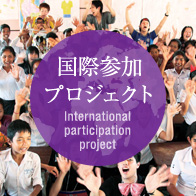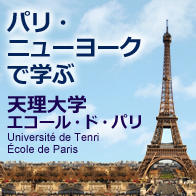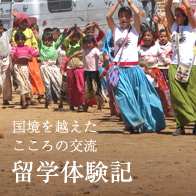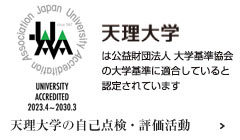ディプロマポリシー
人間学部
人間関係の中で生きることの意味を宗教、臨床心理、生涯教育、社会福祉の側面から捉えるための基礎的な理論や専門的な知識や技術を学び、主体的に考え、社会に貢献する人間力を備えた人材を育成することを目指します。
We aim to nurture human resources who have the human ability to think proactively, and contribute to society as a result of having learned the fundamental theory as well as the specialized knowledge and skills which captures the meaning of living in a world made up of complicated human relationships from the aspects of religion, clinical psychology, lifelong education, and social welfare.
宗教学科
次のような知識や能力を備えた学生に学士(宗教学)の学位を授与します。
①宗教研究に必要な日本語および外国語の能力と情報収集力を身につける(技術)
②天理教および世界のさまざまな宗教について、基礎的な知識を身につけて広い見識をもつことができる(知識)
③世界の諸宗教や天理教の基本的教理に関心をもち、情報収集と分析を通して課題を設定することができる(思考)
④これまでに学んだ知識や研究の方法論を駆使して、宗教研究に積極的に取り組むことができる(意欲)
⑤他者の信仰を理解するとともに多様性を尊重し、価値観を異にする他者と共に生きることができる(態度)
⑥地域社会や国内外各地において「他者への献身」の精神をもって活動することができる(行動)
A bachelor's degree (Religious Studies) will be awarded to students who have acquired the following knowledge and abilities:
1. (Skills) Those who have acquired the Japanese language and foreign languages necessary for researching religions, as well as the ability to gather information.
2. (Knowledge) Those who have acquired basic knowledge about Tenrikyo as well as various religions in the world, and as a result of that, have gained broad views.
3. (Thought) Those who have an interest in the basic teachings of the major world religions and Tenrikyo, as well as have the ability to create assignments through information collection and analysis.
4. (Motivation) Those who can make good use of the knowledge gained, and have a good command of the methodology of research, and can actively engage in religious studies research.
5. (Attitude) Those who can understand other people's religions and beliefs, respect diversity, and are able to live alongside those who have different values.
6. (Action) Those who can work in the local community and in regions both within and outside Japan with the spirit of “dedication to others.”
1. (Skills) Those who have acquired the Japanese language and foreign languages necessary for researching religions, as well as the ability to gather information.
2. (Knowledge) Those who have acquired basic knowledge about Tenrikyo as well as various religions in the world, and as a result of that, have gained broad views.
3. (Thought) Those who have an interest in the basic teachings of the major world religions and Tenrikyo, as well as have the ability to create assignments through information collection and analysis.
4. (Motivation) Those who can make good use of the knowledge gained, and have a good command of the methodology of research, and can actively engage in religious studies research.
5. (Attitude) Those who can understand other people's religions and beliefs, respect diversity, and are able to live alongside those who have different values.
6. (Action) Those who can work in the local community and in regions both within and outside Japan with the spirit of “dedication to others.”
人間関係学科
心理、教育、福祉に関する基礎知識や専門知識を修得し、人間関係をめぐる社会の諸問題の解決に貢献する実践力を身につけた人材を育成することを目指します。
We aims to nurture human resources who have acquired basic knowledge and expertise on psychology, education, and welfare, and have acquired the practical ability to contribute to solving social problems related to human relations.
臨床心理専攻
次のような知識や能力を備えた学生に学士(臨床心理)の学位を授与します。
①悩める人と向き合い、心の交流をとおして支援する他者理解のあり方の意義を理解できる(意欲)
②人間の可能性をとおして心の問題をとらえることができる
(態度・意欲・思考)
③心のはたらきを多角的な視点から学ぶと共に、より高い視野のもと総合的に理解できる(思考・知識・技術)
④自らの心の創造性にふれながら発見と洞察を深めることができる(創造・思考)
⑤心理学の探究に主体的に取り組むことができる(態度)
①悩める人と向き合い、心の交流をとおして支援する他者理解のあり方の意義を理解できる(意欲)
②人間の可能性をとおして心の問題をとらえることができる
(態度・意欲・思考)
③心のはたらきを多角的な視点から学ぶと共に、より高い視野のもと総合的に理解できる(思考・知識・技術)
④自らの心の創造性にふれながら発見と洞察を深めることができる(創造・思考)
⑤心理学の探究に主体的に取り組むことができる(態度)
A bachelor's degree (Clinical Psychology) will be awarded to students who have acquired the following knowledge and abilities:
1. (Motivation) Those who understand the significance of the current state of things through confronting people who are troubled, and supporting them by relating to each other.
2. (Attitude, motivation, thought) Those who are able to grasp problems of the mind through human potentiality.
3. (Thought, knowledge, skills) Those who can learn the workings of the mind from a diversified perspective, and get an overall understanding by using a higher outlook.
4. (Creation, thought) Those who are able to get in touch with their creativity, and deepen their discoveries and observation.
5. (Attitude) Those who can actively engage in researching psychology.
1. (Motivation) Those who understand the significance of the current state of things through confronting people who are troubled, and supporting them by relating to each other.
2. (Attitude, motivation, thought) Those who are able to grasp problems of the mind through human potentiality.
3. (Thought, knowledge, skills) Those who can learn the workings of the mind from a diversified perspective, and get an overall understanding by using a higher outlook.
4. (Creation, thought) Those who are able to get in touch with their creativity, and deepen their discoveries and observation.
5. (Attitude) Those who can actively engage in researching psychology.
生涯教育専攻
次のような知識や能力を備えた学生に学士(生涯教育)の学位を授与します。
①「生涯教育」の意義を理解し、社会の中の多様な学びに目を向けることができる (意欲)
②自ら学び、他者の学びを支援することができる(思考)
③社会教育主事任用資格の取得をベースに専門性をもった職業能力を身につける(知識・技術)
④人間や社会に関わる現代的課題について「教育・学習」の観点から思考することができる(思考・知識・技術)
⑤「生涯教育」を通じてよりよい社会を実現する方策を具体的に探求することができる(創造・行動)
①「生涯教育」の意義を理解し、社会の中の多様な学びに目を向けることができる (意欲)
②自ら学び、他者の学びを支援することができる(思考)
③社会教育主事任用資格の取得をベースに専門性をもった職業能力を身につける(知識・技術)
④人間や社会に関わる現代的課題について「教育・学習」の観点から思考することができる(思考・知識・技術)
⑤「生涯教育」を通じてよりよい社会を実現する方策を具体的に探求することができる(創造・行動)
A bachelor's degree (Lifelong Education) will be awarded to students who have acquired the following knowledge and abilities:
1. (Motivation) Those who understand the significance of “Lifelong Education” and shift their attention to the diverse study in society.
2. (Thought) Those who learn by themselves and also support others in learning.
3. (Knowledge, skills) Those who acquire career skills for specialized jobs requiring qualifications such as the social education supervisor qualification as the base.
4. (Thought, knowledge, skills) Those who can think from the “education and learning” point of view regarding modern issues related to people and society.
5. (Creativity, action) Those who have the ability to pursue specific measures to realize a better society through “Lifelong Education.”
1. (Motivation) Those who understand the significance of “Lifelong Education” and shift their attention to the diverse study in society.
2. (Thought) Those who learn by themselves and also support others in learning.
3. (Knowledge, skills) Those who acquire career skills for specialized jobs requiring qualifications such as the social education supervisor qualification as the base.
4. (Thought, knowledge, skills) Those who can think from the “education and learning” point of view regarding modern issues related to people and society.
5. (Creativity, action) Those who have the ability to pursue specific measures to realize a better society through “Lifelong Education.”
社会福祉専攻
次のような知識や能力を備えた学生に学士(社会福祉)の学位を授与します。
①現代社会における生活上の諸課題を正しく理解し、分析する知識を身につける(知識)
②生活問題を多角的に分析し、支援するための方法を身につける(技術)
③生活上の諸課題とその解決方法について考えることができる(思考)
④社会福祉の価値や倫理を身につける(態度)
⑤実践力を有する福祉専門職または社会福祉の視点をもつ市民として行動することができる(行動)
①現代社会における生活上の諸課題を正しく理解し、分析する知識を身につける(知識)
②生活問題を多角的に分析し、支援するための方法を身につける(技術)
③生活上の諸課題とその解決方法について考えることができる(思考)
④社会福祉の価値や倫理を身につける(態度)
⑤実践力を有する福祉専門職または社会福祉の視点をもつ市民として行動することができる(行動)
A bachelor's degree (Social Welfare) will be awarded to students who have acquired the following knowledge and abilities:
1. (Knowledge) Those who accurately understand various issues of life in modern society, and can acquire the knowledge to analyze those issues.
2. (Skills) Those who can make diversified analysis of everyday problems, and can acquire ways to support them.
3. (Thought) Those who can think about various issues of life, and ways to solve them.
4. (Attitude) Those who can acquire the value and ethics of social welfare.
5. (Action) Those who can make welfare their profession, or take action as a citizen with a social welfare point of view.
1. (Knowledge) Those who accurately understand various issues of life in modern society, and can acquire the knowledge to analyze those issues.
2. (Skills) Those who can make diversified analysis of everyday problems, and can acquire ways to support them.
3. (Thought) Those who can think about various issues of life, and ways to solve them.
4. (Attitude) Those who can acquire the value and ethics of social welfare.
5. (Action) Those who can make welfare their profession, or take action as a citizen with a social welfare point of view.
















